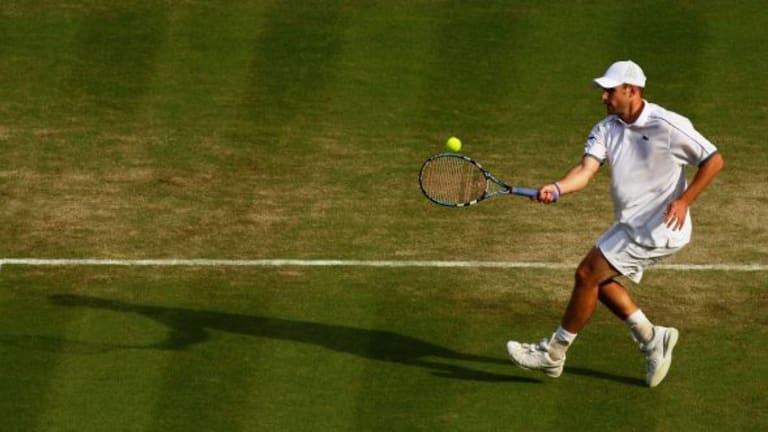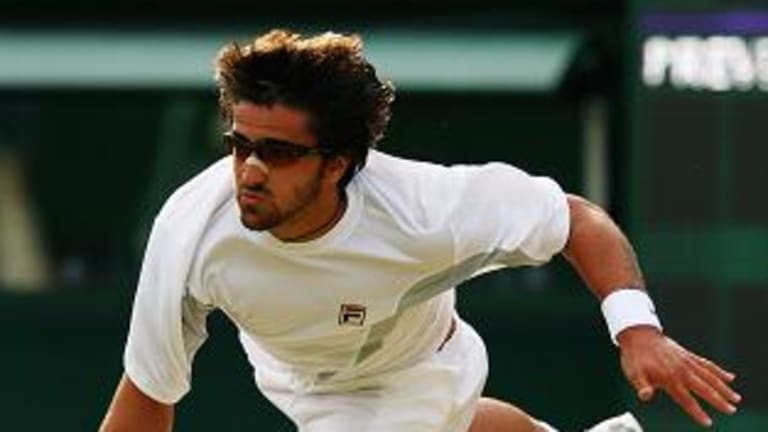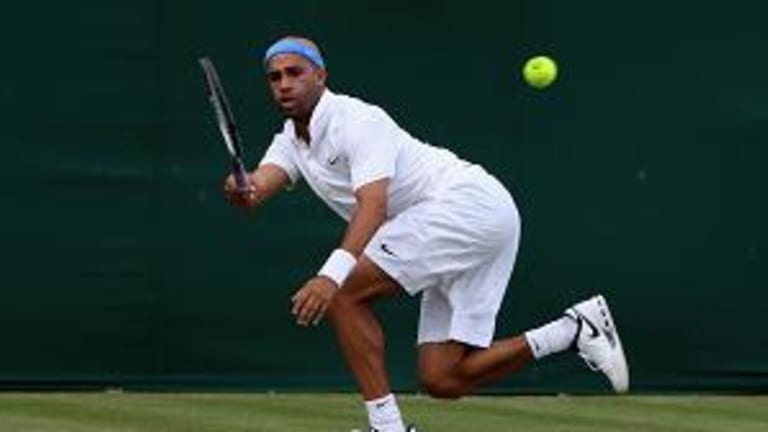It was all kinds of ugly today, perhaps best symbolized by the shot that's probably going to flash across Roddick's inner jumbotron often enough over the next few days, at odd enough times, to position him as the model for some artist's re-interpretation of Edvard Munch's expressionist masterpiece, The Scream. You probably saw it - that mortifying, chop forehand service return that he feebly stuck into the net - off a gift of a second serve, no less! - when he had a set point to level his match with Janko Tipsarevic at two-sets apiece. This was not the Andy Roddick we know and love; hail, it wasn't even the Andy Roddick some people know and love to hate. This was someone Roddick is not - a man paralyzed by opportunity. How odd, given all that Roddick had to gain by doing well at Wimbledon this year.
First things first, though. Although the grass at Wimbledon has slowed appreciably in the past few years, it still retains some of the properties that once ensured that the players who did the best on turf were the ones who brought the best combination of power and athleticism to the greensward. In Sharapova's loss to Alla Kudryavetska, we saw how undisciplined power (the kind that is produced with so much effort that too many things can go wrong) combined with a lack of flex and/or fluidity can add up to a kind of anti-grass-court-grass-court game. And in Blake's match, we saw how speed and even weight of shot lose what capacity they have to menace if a player isn't willing to barge through the doors cracked open by those virtues, and present his opponent with difficult questions to answer.
The limitations on display yesterday served to underscore the idea that tennis on grass is, to a far greater degree than meets the eye, about versatility, improvisational ability, risk-taking and - perhaps most of all - the willingness to finish what you start. To back up every shot with whatever ought to come next in some Platonic universe, whether it's a volley, approach shot, or pace-and-tone-altering drop shot or placement. The one common theme in all three big upsets yesterday can be summed up in a single, hyphenated word: one-dimensionality.
Sharapova's skills are so narrowly defined that she can be in trouble on any surface, on any day. That she wins so often is a tribute to her fighting spirit. Blake, always suspect in long matches, doesn't appear very interested in figuring out ways to exploit his mercurial tendencies. This will be clear to anyone who remembers the way the late Vitas Gerulaitis, who was fleet and flashy in the same way as Blake, capitalized on comparable gifts with gusto and courage. Vitas turned tennis into a kind of high-speed shell game. Granted, Blake has nothing like that razor-sharp Gerulaitis backhand volley, or that low-skidding backhand slice approach shot with which to bring it into play. But remember also that Vitas had no forehand and, to go with it, a flat/topspin backhand that was shaky on its best day. But Vitas had guts and guile. Those two virtues will take you a long way on grass, even today.


